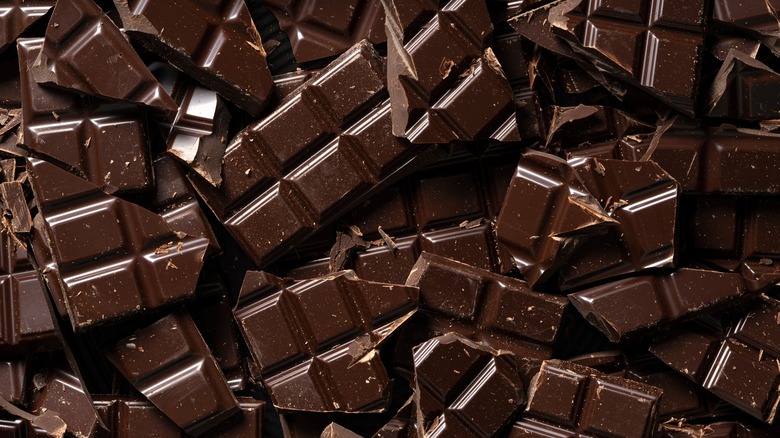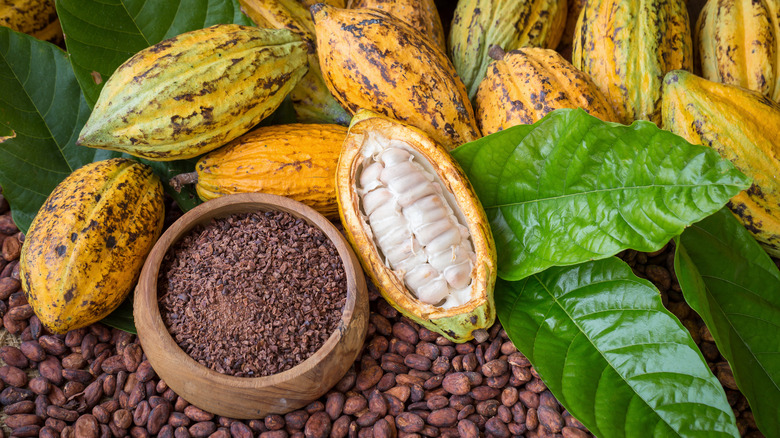Global Warming Is Wreaking Havoc On The World's Chocolate
Whether you're enjoying a craft bar or a slice of densely rich cake, chocolate is undeniably among the most beloved when it comes to delectable treats. The stats on this sweet are staggering — in 2023 alone, 7.5 million tons of chocolate was consumed worldwide and the chocolate industry itself reached a net worth of almost $128 billion. But our chocolate supplies may not continue to support this global obsession much longer, as it becomes harder and harder to produce the necessary supply of cacao and sugar each year.
While issues like pests, depleted soil health, and inhospitable working conditions in key production regions are all having an impact on farmers' ability to grow these crops, global warming and the resulting ecosystem changes are far and away the most pressing issues in the world of chocolate today. The reduced supplies have certainly been felt by consumers globally, who have seen costs rise between 13 and 20% in the last two years. And unfortunately, things aren't set to improve anytime soon.
Key farming countries are getting hit hardest by global warming
Global warming will, of course, impact everyone, but it's the countries closest to the equator that have felt its effects most prominently. And since cacao trees grow best in the tropical rainforests found within 10 degrees of the equator, they're experiencing significant ecosystem change. Côte d'Ivoire and Ghana, two West African countries that have historically produced around 60% of the world's cacao, have experienced increases in rainfall.
This shift in climate has resulted in inhospitably wet growing conditions for cacao trees and the ripe breeding grounds for a fungus called Phytophthora, which spreads rampantly and causes cacao pods to turn black and rot. Combined, these two problems have meant the smallest viable cacao harvests West Africa has seen in over 7 years. Climate change has also intensified the weather phenomenon El Niño, which meant that prominent exporters of sugar India and Thailand lost much of their crops to unusually dry conditions. In 2023, sugar reserves around the world hit the lowest levels seen in 14 years.
The future of chocolate
While we'd like to end on a sweeter note, the future of chocolate remains pretty bleak. In a 2023 global survey of farmers across eight countries, over 70% reported that they were already feeling the effects of global warming on their farms (via Bayer). Climate experts considering the trajectory of global warming by 2050 determined that Africa's cocoa belt will be forced to relocate its growing regions. Of the 294 possible new locations they surveyed for cacao farming under these conditions, according to NOAA, only 10.5% of them were deemed suitable for cacao cultivation.
Of course, projections are not set in stone and we can't say for sure what the coming years have in store for cacao, sugar, or chocolate production. In the meantime, farmers and agricultural scientists work on developing adaptation strategies that will allow for the largest possible harvests, despite changing conditions. And while there's no reason to expect consumers' taste for chocolate to abate, it may become a luxury item far sooner than we imagine.



